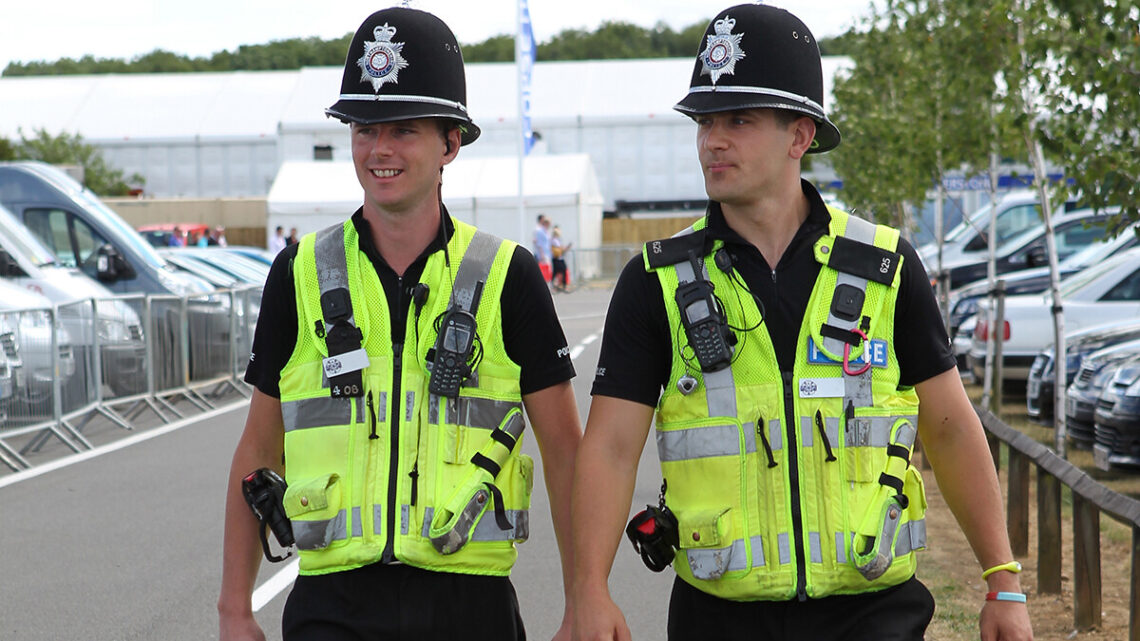
From uniform to uniform
The transition from the Military to civilian uniformed services can be just about as straightforward as resettlement gets.
One of the aspects of Serving in the Military that is often difficult to replicate in civilian careers, is a sense of public service. Moving from a Military uniform to say, that of an emergency services worker, can provide not only a solid post-Forces career that will play to your strengths but it’ll also satisfy your ongoing appetite to help people.
A new career
For Service-leavers looking for a new challenge, working in the emergency services sector can provide a quick and suitable transition back to civilian life – with that extra tingle of doing something that’s needed and worthwhile. Naturally, the attitude and skill set required for emergency services work is closely aligned with that which Service-leavers have spent years developing in their Military careers.
While all three main emergency services have their specialisms, each also contains further opportunities to exercise particular skills and disciplines. For instance, in the police, you could be working with the Transport Police or land a role as a dog handler. In the ambulance service, you could be either an ambulance driver, paramedic or call handler, and so on.
Beyond the three emergency services, there are further uniformed roles in the public service and protection sphere, such as coastguard, prison officer and mountain rescue to consider.
The challenges of our public sector are well known but of course these have been compacted by the ongoing coronavirus pandemic which has led to many extra pressures. The NHS
continues to report shortages including ambulance and emergency call handler jobs, with the BBC News website reporting only recently that the Military have been bolstering services in some parts of the UK.
A new uniform…
The following notes cover some of the civvy uniformed roles you might be suited to…
Careers in ambulance services
A role in the ambulance service can be very rewarding if you’re an effective communicator and can handle a high-pressure environment where quick thinking is paramount. Services are run by NHS trusts across the UK. (Each ambulance trust offers different opportunities – check recruitment websites regularly.)

Roles available: Entry level roles include emergency care assistants (ECA) who drive ambulances and assist paramedics, patient transport service (PTS) drivers who provide non-emergency transport and emergency medical dispatchers who handle 999 calls. Senior roles include paramedics and emergency medical technicians who provide treatment in both emergency and non-emergency situations.
Entry requirements: All entry-level roles are open to applicants with a minimum of three GCSEs, with a clean driving licence needed for positions involving driving a vehicle. Paramedic roles require a degree-level qualification in paramedic science, which can be taken as part of an apprenticeship or on-the-job training.
Salary: Entry level job salaries currently range between £18,000 – £25,000. Paramedic and senior paramedic salaries range between £31,000 – £38,000.
The average salary for an ambulance driver is £24,000 (with an average starting salary of £16,000). The highest salaries can exceed £40,000.
Figures by: uk.jobted.com
Paramedic salaries start from £24,907 – £30,615 and increase to £31,365 – £37,890 after two years following a newly qualified paramedic pathway.
Team leaders or senior paramedics who have undertaken extended skills training in critical care or trauma will earn between £31,365 and £44,503. If you continue to work up to the level of consultant paramedic, you could achieve a salary of £63,751 – £73,664.
Figures by: www.prospects.ac.uk
Career progression: ECA and call-handler roles offer the chance to progress towards team leader or supervisor positions, or transition to paramedic roles with the necessary training. Paramedics and experienced medical technicians can look to progress to specialist medical care roles or working within the air ambulance division.
How to apply: Information is available on NHS websites such as: www.jobs.nhs.uk and www.healthcareers.nhs.uk
and www.nhscareers.nhs.uk
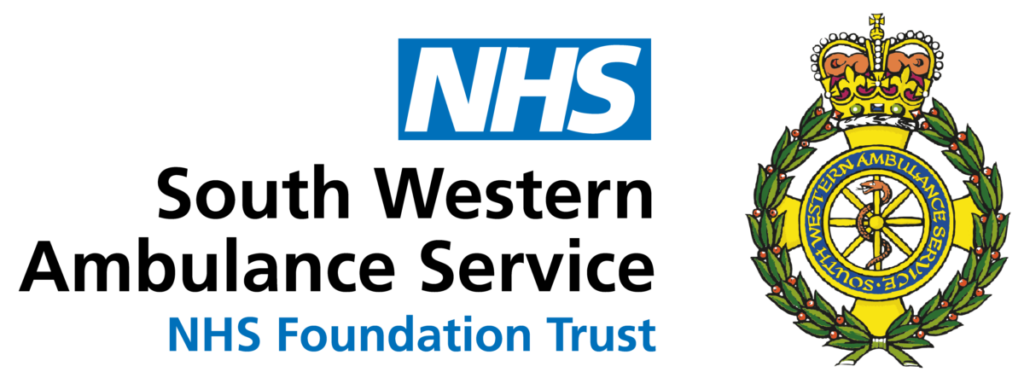
South Western Ambulance Service
The Trust, is currently going through the application process to become accredited to join the Veterans Covenant Healthcare Alliance, part of which includes signing up to the Armed Forces Covenant.
By signing the Covenant we are demonstrating our commitment to support our employees as Reservists and Veterans and becoming a Forces friendly employer, enabling us to benefit from the wide range of
unique skills and experiences that Reservists and Veterans can bring to our organisation.
Becoming accredited to the alliance will enable us to work with other stakeholders in raising awareness and sharing best practice across the NHS and modelling the best standards of care for the Armed Forces Community.
Visit: www.swast.nhs.uk
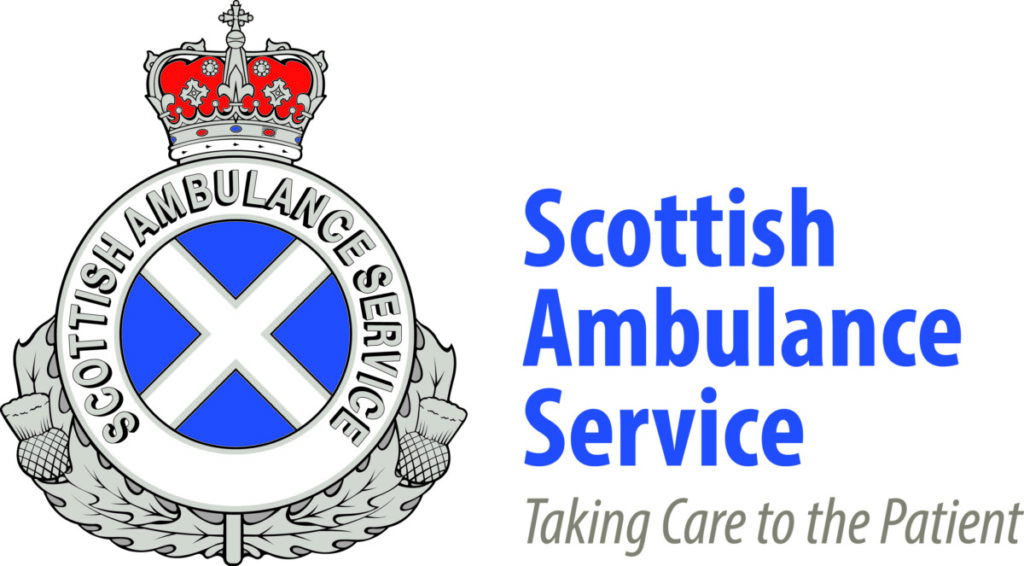
The Scottish Ambulance Service
The Scottish Ambulance Service has over 6,000 staff and 1,200 volunteers, providing an emergency ambulance service to a population of over five million people across Scotland. Our aim is to offer the highest level of care to our patients as we preserve life and promote recovery, with our skilled workforce bringing care and compassion to those who need it most.
We provide ambulance care to patients who need support to reach their healthcare appointment, or for their admission to and discharge from hospital. We also transfer some of Scotland’s most serious patients and support the ongoing response to the pandemic through our mobile testing units. Our air ambulance undertakes around 3,500 missions a year.
The Service has a close association with the Armed Forces and have been awarded the Defence Employer Recognition Scheme Gold Award, signed the Armed Forces Covenant, engaged with Career Transition Partnership (CTP) in the recruitment of Service-leavers and have registered for the Forces Families Jobs (FFJ) portal.
Visit: www.scottishambulance.com
Careers in police services
Policing isn’t just about being a ‘bobby on the beat’. There is a wide range of police service jobs within the 48 police forces across the UK, as well as roles within specialist forces such as the British Transport Police.
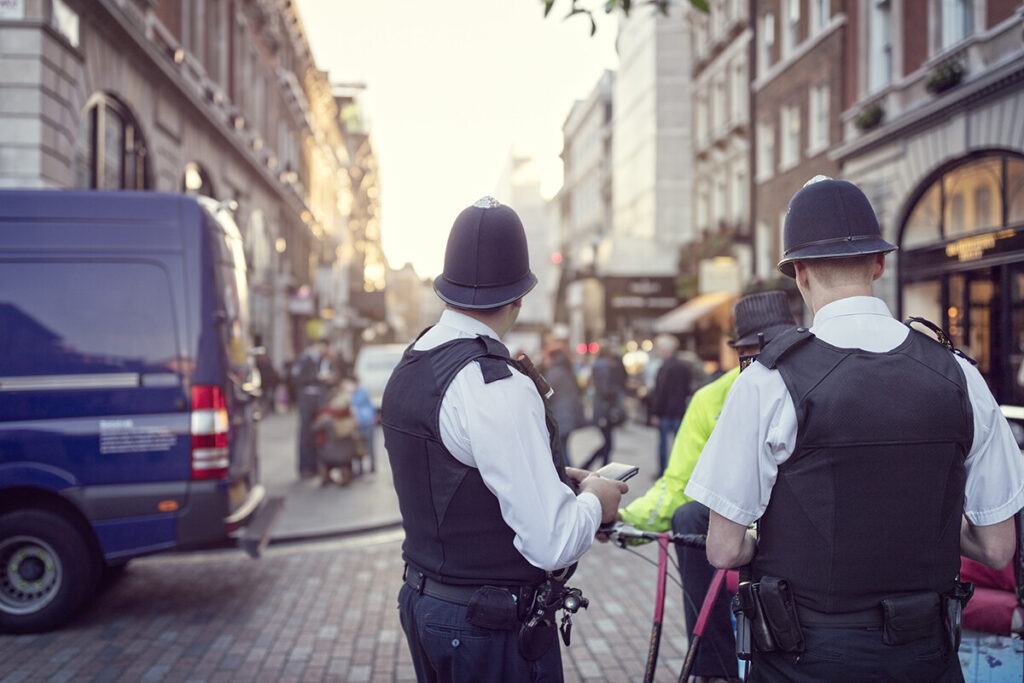
Roles available: Entry level roles include police constable (PC), emergency call handler, dog handler, scenes of crime officer and enquiries officer. More senior level and specialist roles include police inspector, superintendent, counter-terrorism officer, crime scene investigator, and working for units such as fraud investigation or the drug squad.
Entry requirements: There is no standard entry level for police work and regional services are free to set their own requirements. Entry level PC roles can be accessed through a three-year apprenticeship while graduates and those with relevant professional experience can apply for senior positions through the Police Now scheme.
Salary: The pay scale for police constable jobs is around £20,880 – £40,128 per year (after around seven years’ of experience). Inspector salaries range from £51,414 – £55,768. Chief inspectors can earn between £56,909 and £59,249. Emergency call handlers earn an average salary of around £26,296.
Figures from: www.prospects.ac.uk and www.glassdoor.co.uk
Career progression: Those who start off at entry level can rise through the ranks to senior and managerial roles or train for more specialist work.
How to apply: You can find information at Joining The Police: www.joiningthepolice.co.uk and the College of Policing: www.college.police.uk
Check Police Now: www.policenow.org.uk for information on senior positions.
Reasons to be optimistic…
Police
Further funding was announced earlier this year as part of the Police Funding Settlement for 2021/22 providing up to £15.8 billion of funding for the policing system, which is an increase of £636 million on the 2020/21 settlement, and funding available to Police and Crime Commissioners (PCCs) has increased by up to £703 million.
Fire services
The UK Government spent approximately £3.13 billion on fire-protection services in 2020/21, the highest amount spent since 2010/11 when the Government spent £3.02 billion.
Ambulance services
In July this year, it was announced that ambulance trusts in England would be given an extra £55 million to boost staff numbers ahead of winter, the NHS announced today. The funding is designed to help services recruit more 999 call handlers, crews and clinicians to work in control rooms.
The UK’s largest independent provider of NHS services across England offer opportunities for both clinical and medical former Service personnel and Veterans in addition to those suitable for Service-leavers without a medical background.
Examples of their services and opportunities include NHS 111 contact centres, with opportunities for non-clinical staff answering calls from the public as well as managerial and operational positions and clinical vacancies for primary care nurses and paramedics to speak over the phone with triaged patients to give clinical advice or direct to appropriate physical healthcare services.
Other services include GP out-of-hours and health-in-justice solutions, where they run the healthcare departments in around 50 prisons.
Practice Plus Group also operate private hospitals and surgical centres, predominantly offering diagnostic and surgical treatment to both NHS and private patients requiring elective procedures. In these settings they have medical opportunities for consultant surgeons across a broad range of specialisms, in addition to vacancies for nurses and AHPs.
To learn more visit: www.practiceplusgroup.com or email: careers@practiceplusgroup.com quoting ‘Civvy Street’
What Service-leavers bring to the emergency services
Fire services have also experienced shortages over the past couple of years. During the peak of the Covid crisis, workers found their roles extended to delivering emergency medical and food supplies in many areas. Beyond that, some commentators have suggested that the UK is short of around 5,000 firefighters, given the presence of threats of natural disaster such as flooding and possible terrorist attacks and so on. Similarly, with the pandemic likely to continue to affect our lives well into the future, this could be the ideal moment for Service-leavers to take up the challenge.
What Service-leavers bring to roles in the emergency services
Service-leavers provide a unique talent pool that greatly benefits the emergency services sector. In many ways they are ready-made candidates for a variety of roles. As a Service-leaver, you will be well used to the hierarchical leadership structure of uniformed services and will have developed the ability to find the balance between following or seeking instructions within a chain of command and knowing when to exercise your own initiative.
Skills that are valued in the emergency services that Service-leavers are likely to excel in include:
Teamwork – all emergency services positions require the ability to be a team player, fulfilling your own duties and supporting colleagues to work towards a common objective.
Discipline and attention to detail – you need to be switched on at all times and focused on giving your best as, just as with your Forces duties, mistakes can be fatal.
Communication and interpersonal skills – this includes the ability to communicate effectively with workmates as well as being able to reassure members of the public or diffuse problematic situations.
Making decisions under pressure – your Forces experience will have equipped you with this essential skill for weighing up high-pressure situations and taking decisive action.
Step into Health
For Service-leavers interested in an NHS career, there is a tailored programme called Step into Health. This is aimed at supporting Service-leavers to move into NHS employment by providing career development, job matching and job finding services to help ex-Forces personnel make the best of their skills and find suitable roles.
www.militarystepintohealth.nhs.uk
Careers in the fire service
Work in the fire service involves tackling blazes, carrying out rescue services and giving fire safety presentations within the local community. Each area of the UK has its own fire service which deals internally with recruitment.
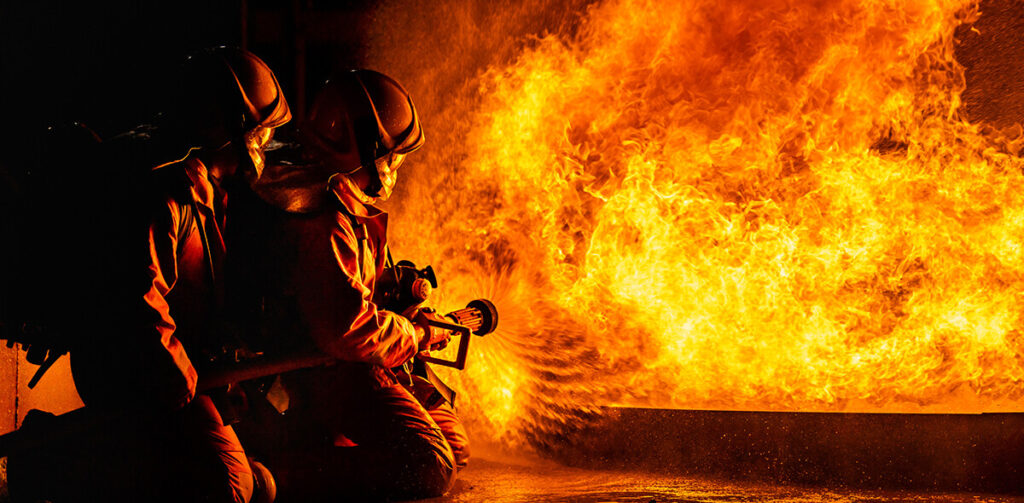
Roles available: The main entry level role is as a trainee firefighter. Some less populated rural areas employ retained firefighters, who perform the same role as ordinary firefighters but operate on an on-call basis and often have other jobs.
Entry requirements: There is no national minimum requirement to become a trainee firefighter. Some stations may ask for a minimum number of GCSEs. You will need to pass medical tests and complete an induction that lasts around 16 weeks. Some fire services offer fast-track schemes into senior and managerial posts for graduates and those with relevant experience.
Salary: The starting salary for a trainee firefighter is £23,366. When fully trained, this rises to £31,144.
Crew manager salaries range from £33,101 (development) to £34,528 (competent) and watch manager salaries range from £35,275 to £38,611.
A station manager earns between £40,161 and £44,297 plus overtime, subject to the officer’s level of competence.
Retained firefighters are paid an annual retainer, dependent on their role in the service, plus a turn-out fee for each incident they attend. They start at £2,337 for a trainee, while a competent retained firefighter receives £3,114.
Figures from: www.prospects.ac.uk
Career progression: Dedicated firefighters can progress to managerial positions including crew manager, watch manager, station manager and regional manager.
How to apply: www.fireservice.co.uk



